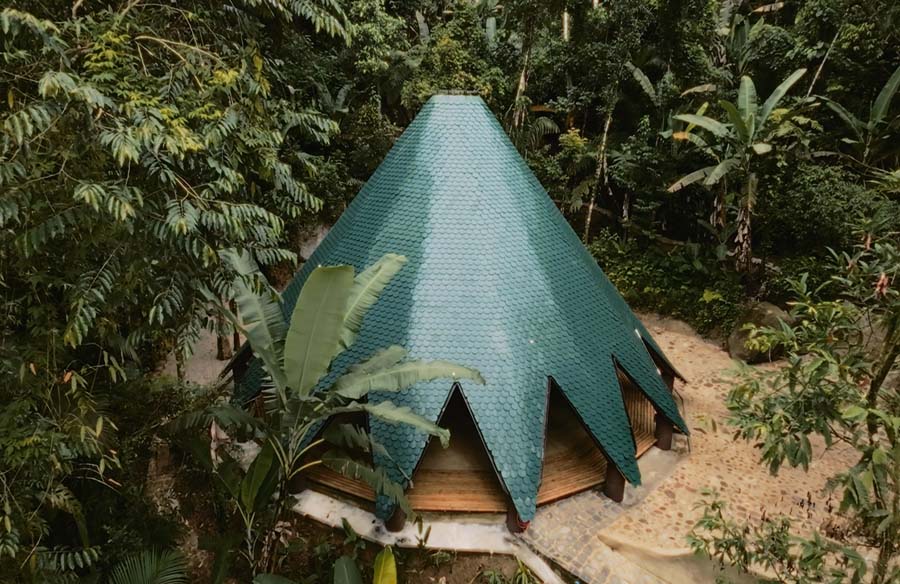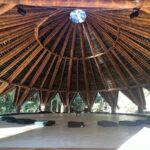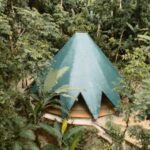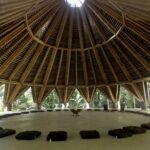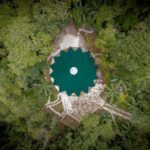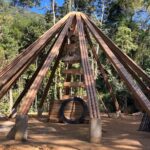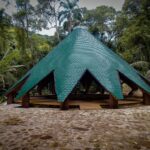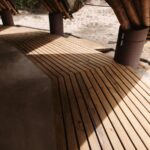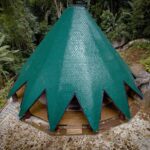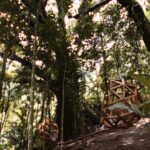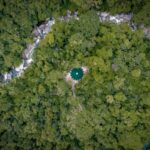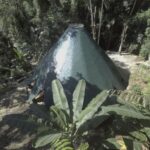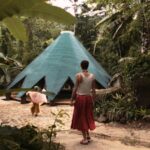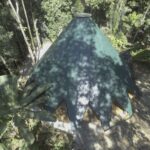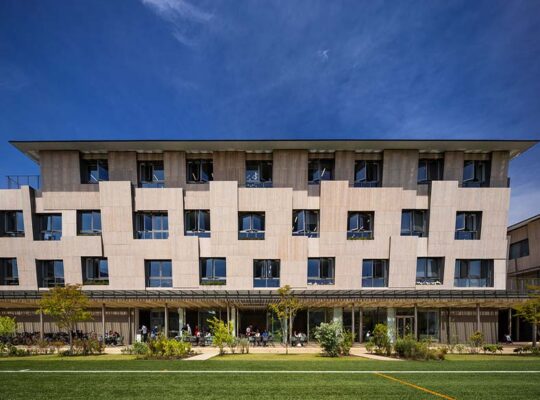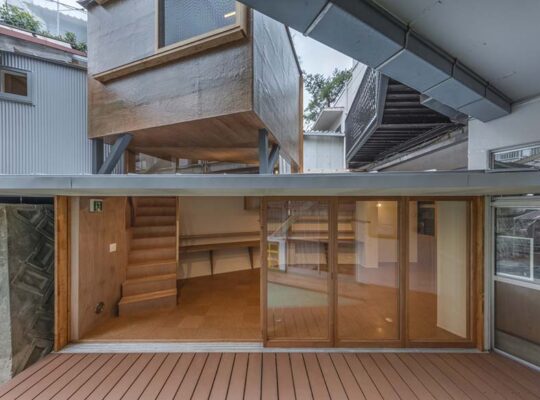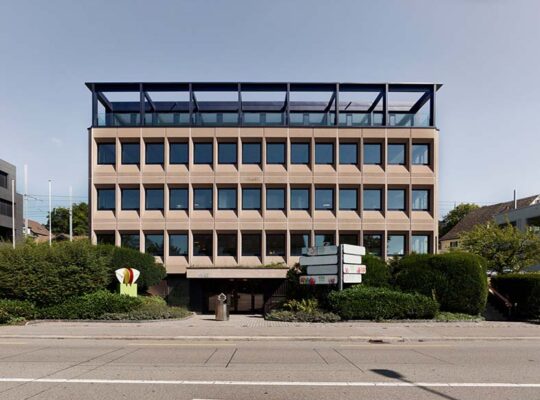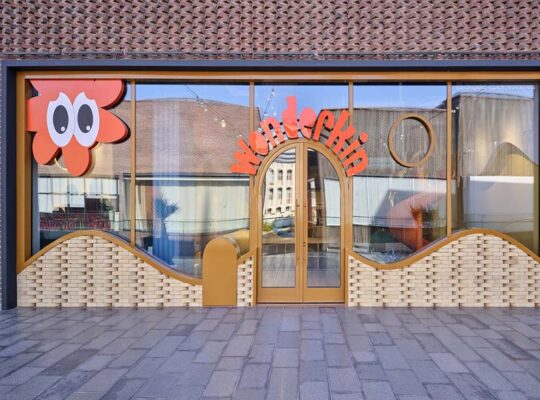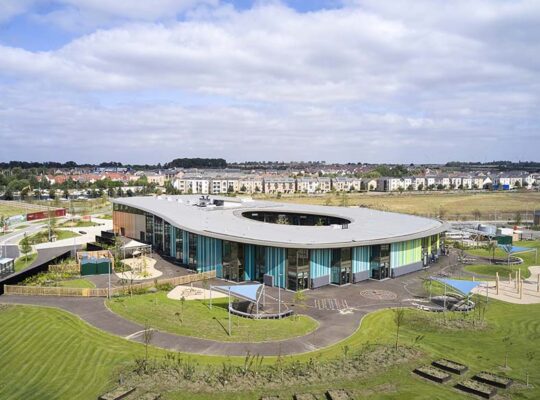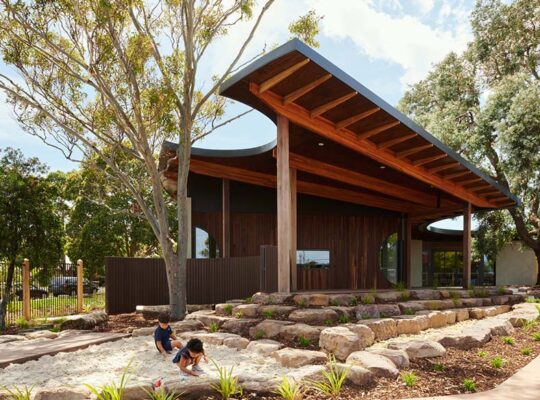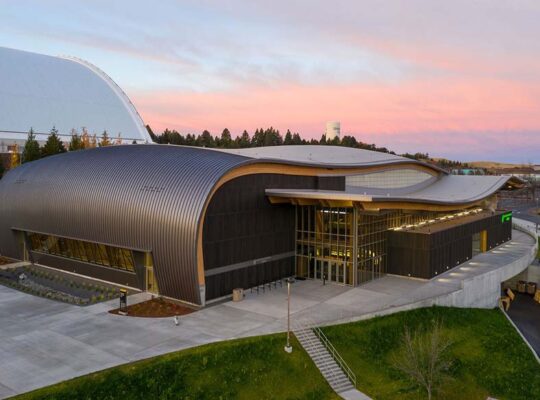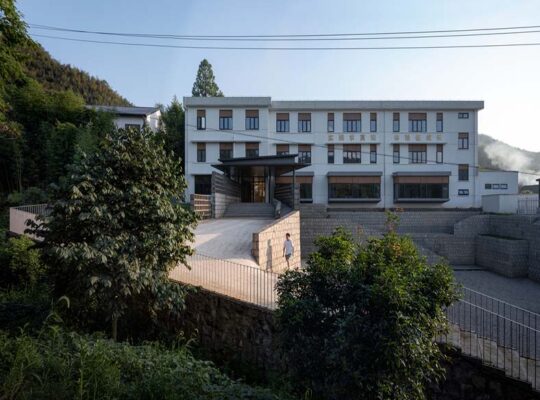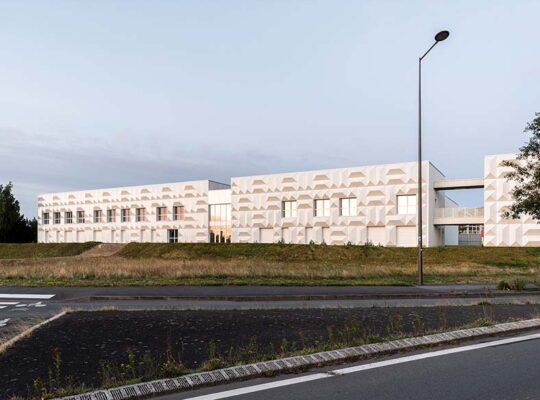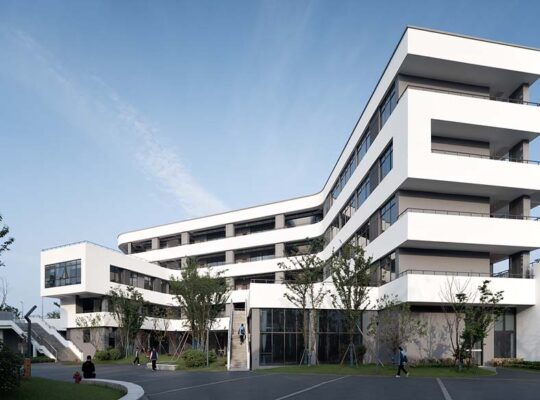Introduction
AYURU, named after a bird in Tupi-Guarani, embodies the concept of harmonious integration with nature. Designed by Atelier Marko Brajovic, this forest temple serves as a sanctuary for ecological relationships, embracing lightness and gentleness in its approach.

Design Concept
Drawing inspiration from the fluid movement of birds, AYURU is conceived as a space that delicately lands within its ecological territory. With a height of 8m and an external diameter of 16m, the temple offers a flexible area for various events and practices. Two squares on the East and West sides extend the potential program of uses, seamlessly blending into the surrounding landscape.
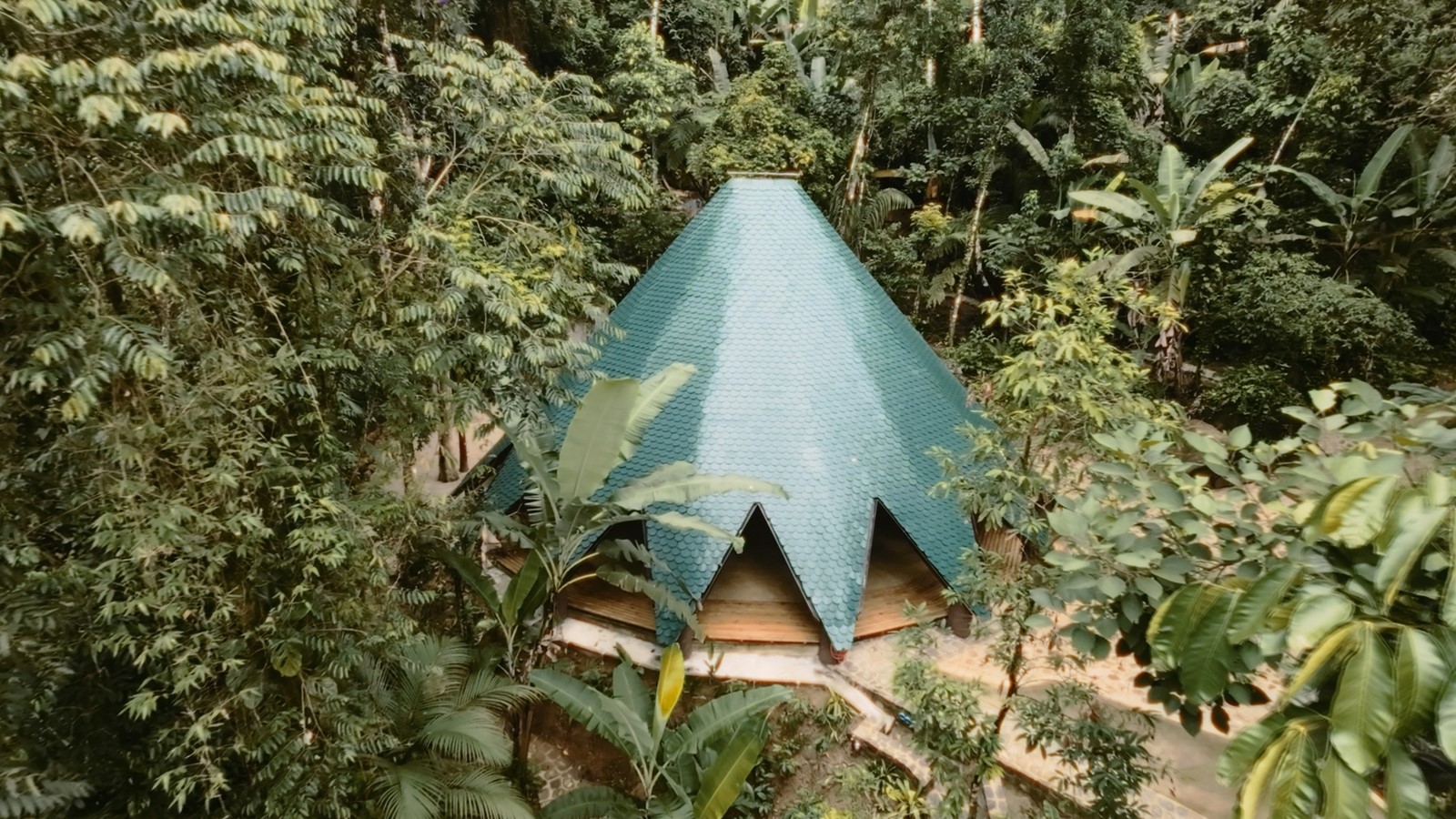
Structural System
The structural system of AYURU reflects ancestral indigenous architecture, constructed entirely from bamboo of the Guadua Angustifolia species. Sixteen pillars, each 11m long, support the space, along with a dense composition of transverse beams. An iron ring at the center distributes forces across the radial geometry, while allowing for natural light and ventilation. The roof, adorned with ceramic tiles glazed in high-temperature ovens, exhibits a unique blue-green hue, transforming with the interplay of light and shadow.
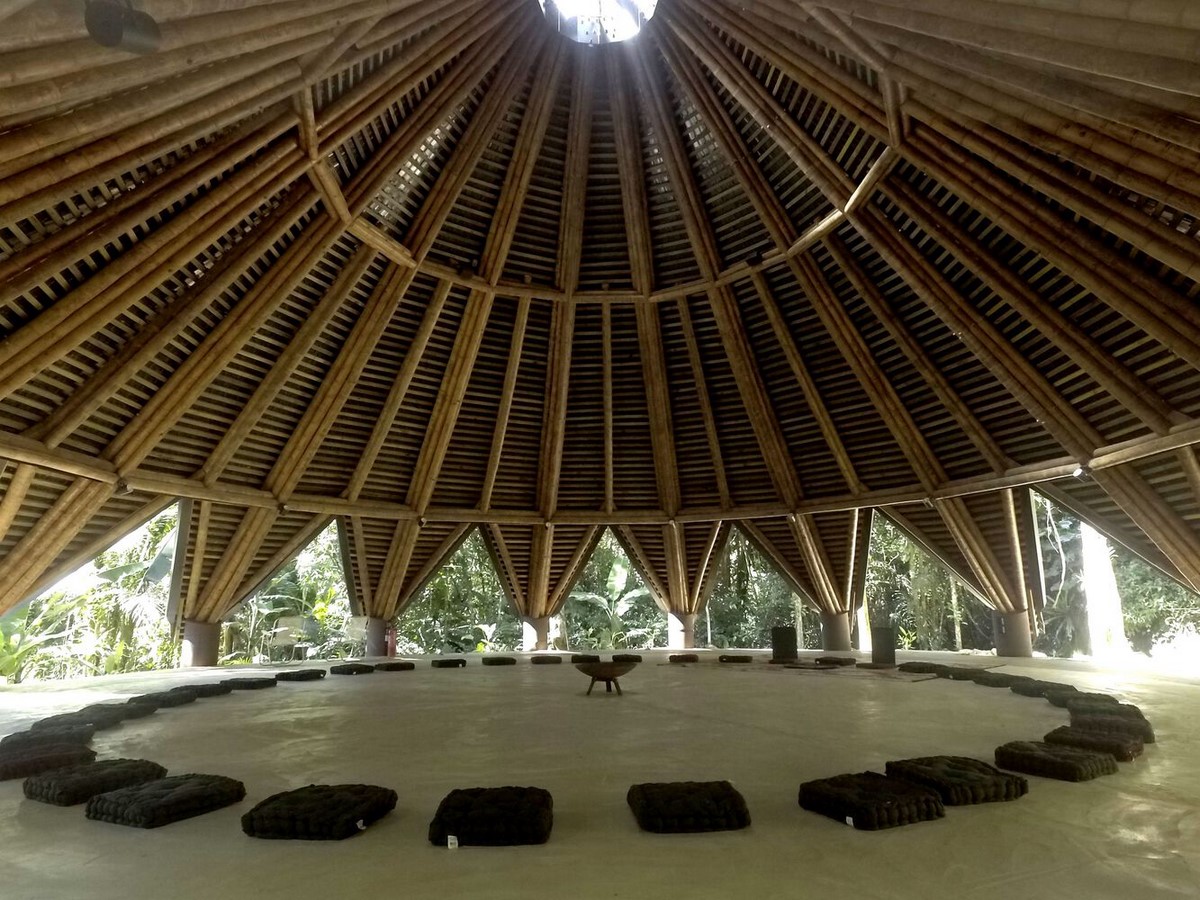
Interior Design
The interior space of AYURU is organized around a central area, featuring a soil-cement floor made from local clay and decking areas crafted from eucalyptus sourced from the Cunha region. Symmetrically arranged, the interior exudes tranquility and harmony, providing a serene environment for reflection and connection with nature.
Local Materials and Sustainability
AYURU prioritizes the use of local materials, with bamboo from the Mambucaba region and clay from nearby sources forming the backbone of its construction. This commitment to sustainability ensures minimal environmental impact while fostering a strong connection to the surrounding landscape.
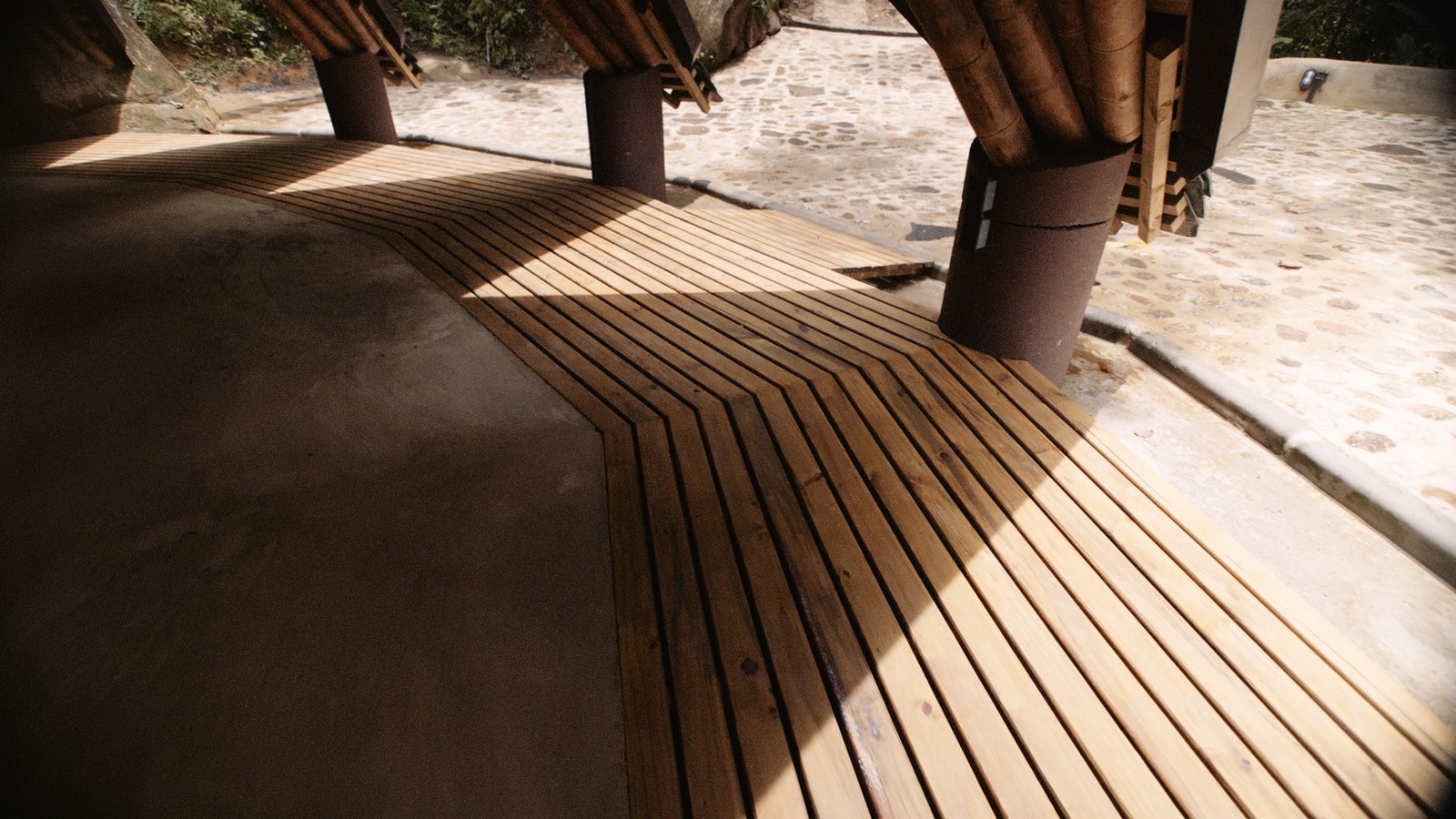
Purpose and Integration
Designed for Aldeia Rizoma in Paraty, AYURU serves as a Forest Temple, integrating ecological accommodations and well-being programs with immersive events in nature. It embodies the ethos of living in harmony with the environment, offering a sanctuary for spiritual renewal and ecological awareness.
